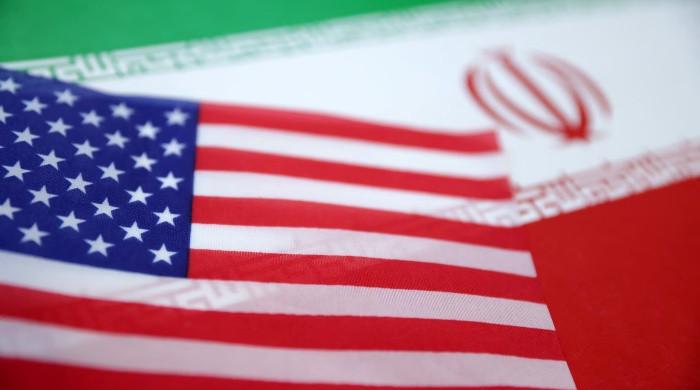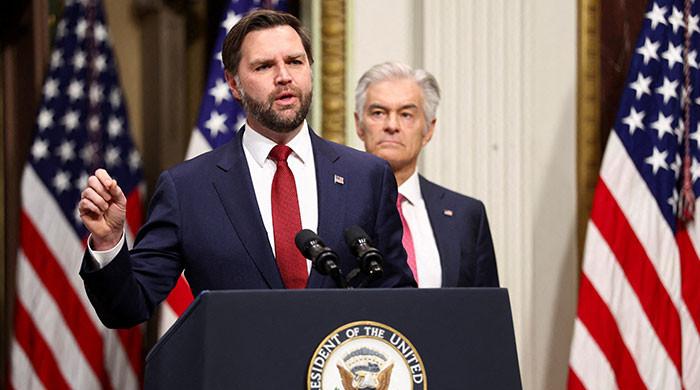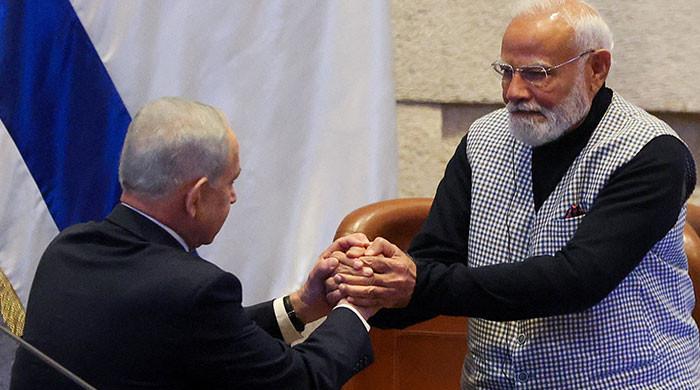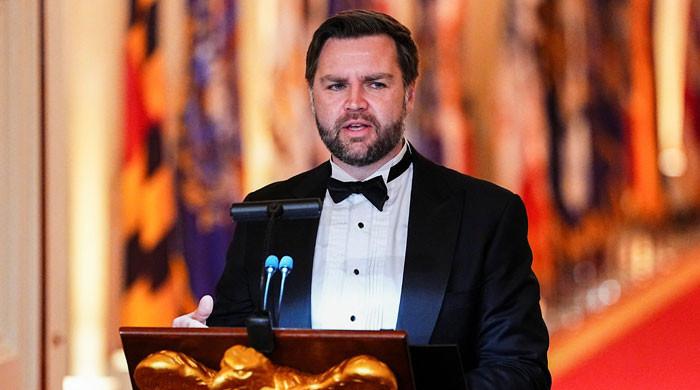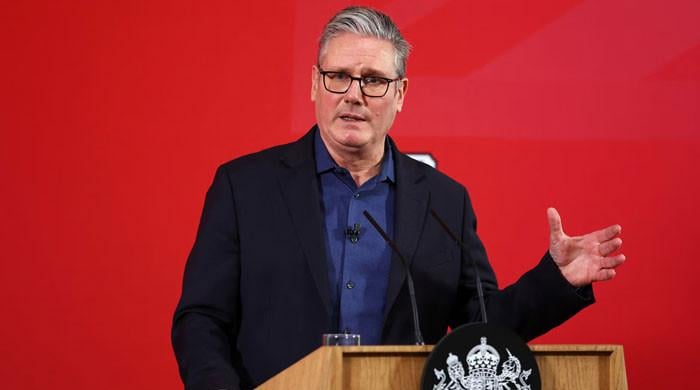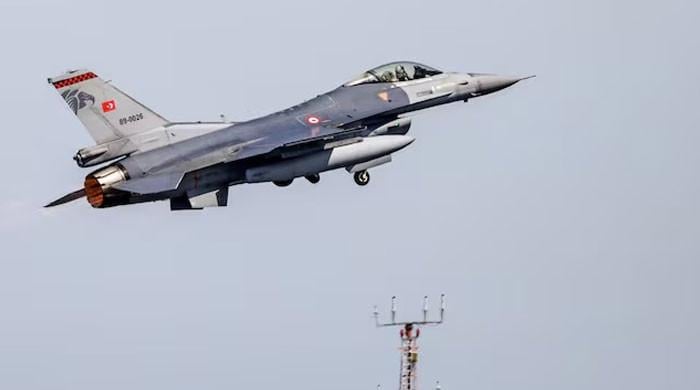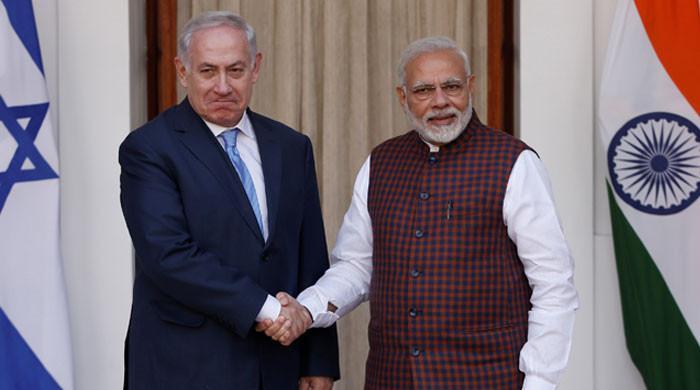Biden says US killed Al-Qaeda chief al-Zawahiri in Afghanistan
"Justice has been delivered and this terrorist leader is no more," US President Joe Biden says
August 02, 2022
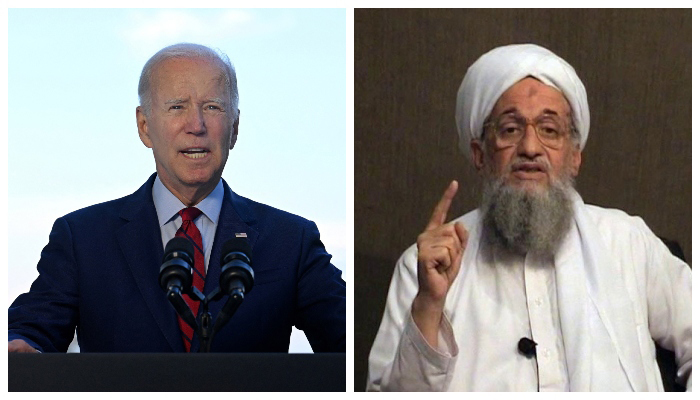
- US President Biden announced the killing of Al-Qaeda chief Ayman al-Zawahiri, the alleged planner of the 9/11 attacks.
- Says the strike was carried out in Kabul, Afghanistan on Saturday.
- Says there were no civilian casualties and justice has been delivered.
WASHINGTON: President Joe Biden announced Monday that the United States had killed Al-Qaeda chief Ayman al-Zawahiri, one of the world's most wanted terrorists and suspected mastermind of the September 11, 2001 attacks.
In a televised address, Biden said the strike in Kabul, Afghanistan had been carried out on Saturday. "I gave the final approval to go get him," he said, adding that there had been no civilian casualties.
"Justice has been delivered and this terrorist leader is no more," Biden said.
A senior administration official said Zawahiri had been killed on the balcony of a house in Kabul in a drone strike, and that there had been no US boots on the ground in Afghanistan.
The official said that Zawahiri's presence in the Afghan capital Kabul was a "clear violation" of a deal the Taliban had signed with the US in Doha in 2020 that paved the way for the US withdrawal from Afghanistan.
It was the first known over-the-horizon strike by the United States on an Al-Qaeda target in Afghanistan since American forces withdrew from the country on August 31, 2021.
Zawahiri, an Egyptian surgeon who grew up in a comfortable Cairo household before turning to violent radicalism, had been on the run for 20 years since the 9/11 attacks that killed nearly 3,000 people in the United States.
He took over Al-Qaeda after Osama bin Laden was killed by US special forces in Pakistan in 2011, and had a $25 million US bounty on his head.
Over the weekend the Afghan interior ministry denied reports circulating on social media of a drone strike in Kabul, telling AFP a rocket struck "an empty house" in the capital, causing no casualties.
Early Tuesday in Kabul, however, Taliban spokesman Zabihullah Mujahid tweeted that an "aerial attack" was carried out on a residence in the Sherpur area of the city.
"The nature of the incident was not revealed at first. The security and intelligence agencies of the [Daesh] investigated the incident and found in their preliminary investigations that the attack was carried out by American drones," his tweet said.
In recent months the Taliban have largely barred media from covering the aftermath of security incidents and frequently deny or downplay any casualties.
The news comes a month before the first anniversary of the final withdrawal of US troops from Afghanistan, leaving the country in control of the Taliban insurgency that fought Western forces over the preceding two decades.
The US withdrew after the Taliban signed the deal in Doha in 2020 in which they promised not to allow Afghanistan to be used again as a launchpad for international extremism, but experts believe the group never broke their ties with Al-Qaeda.
Doctor turned extremist
Zawahiri, 71, lacked the potent charisma that helped bin Laden rally extremists around the world, but willingly channelled his analytical skills into the Al-Qaeda cause.
He was believed to be the main strategist -- the real mastermind who steered operations, including the September 11 attacks, as well as bin Laden's personal doctor.
Zawahiri's father was a renowned physician and his grandfather a prayer leader at Cairo's Al-Azhar institute.
He became involved with Egypt's radical community at a young age and published several books on fundamentalism.
He left Egypt in the mid-1980s and headed for Pakistan's northwestern city of Peshawar where the resistance to the Soviet occupation of Afghanistan was based.
It was at that time, when thousands of fighters flooded into Afghanistan during the 1980s, that Zawahiri and bin Laden met.
In the early 1990s Zawahiri is believed to have lived in Europe before joining bin Laden in Sudan or Afghanistan.
In 1998 he was one of five signatories to bin Laden's "fatwa" calling for attacks against Americans and he began appearing regularly at the Al-Qaeda leader's side.




